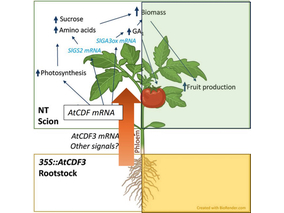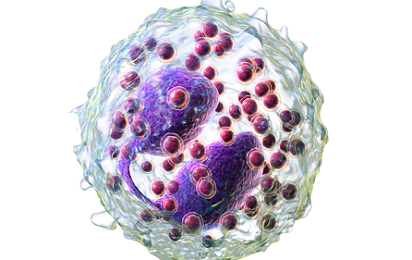We are happy to share our latest report from the work carried out in collaboration with GlaxoSmithKline and the Drug Discovery Unit of the University of Dundee. The paper published in RSC Medicinal Chemistry tells another chapter in the story of the development of preclinical candidate DDD853651/GSK3186899 for the treatment of visceral leishmaniasis (VL), a disease caused by Leishmania parasites. This neglected disease is fatal if left untreated and its large incidence in developing countries urges the development of both efficient and accessible treatments.
DDD853651/GSK3186899 was reported in 2019 as a drug candidate for the treatment of VL. The discovery program began with a hit from a phenotypic screening (compound 1), which was subsequently optimized for improved potency.
 In a previous work, we reported the optimization of a challenging Buchwald–Hartwig cross-coupling reaction to insert the morpholine fragment on the LHS of the molecule. The present work describes further modifications of 1 to improve its potency in vivo.
In a previous work, we reported the optimization of a challenging Buchwald–Hartwig cross-coupling reaction to insert the morpholine fragment on the LHS of the molecule. The present work describes further modifications of 1 to improve its potency in vivo.
The strategy involved the synthesis and evaluation of 50 compounds, where modifications on the RHS, LFH and central unit were explored to achieve the right balance of potency, solubility and toxicity. This approach led to a series of 4-aminopiperidines with promising antileishmanial activity in vivo. The article is Open Access, so do not hesitate to check it out if you share our passion for chemistry!

El equipo de investigadores observó cambios en el...

El gen AtCDF3 promueve una mayor producción de az...

Un estudio con datos de los últimos 35 años, ind...

En nuestro post hablamos sobre este interesante tipo de célula del si...

La revista ‘Nature Protocols’ selecciona esta técnica como “pro...
Portal de biotecnología en España
¡Suscríbase a nuestro newsletter para estar al día con las últimas noticias y ofertas!
2013 © Biotech-Spain.com - Site Developments SL. Todos los derechos reservados. Terminos y Condiciones | Política de Privacidad
Articles
Directory
